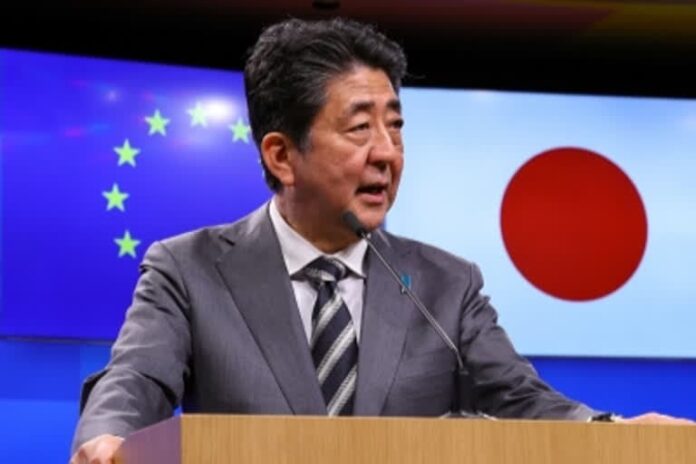| Translate This News In |
|---|
Shinzo Abe, Japan’s former Prime Minister, was wounded during a campaign rally in western Japan on Friday and was airlifted to a hospital, but he was not breathing and his heart had stopped, according to officials. According to local fire department official Makoto Morimoto, Abe was shot and went into cardiac and pulmonary arrest before being transferred to a prefectural hospital.
Hirokazu Matsuno, Chief Cabinet Secretary, told reporters that a suspected male attacker was apprehended at the spot. A brutal act like this is totally reprehensible, regardless of the circumstances, and we strongly condemn it, Matsuno added.
The NHK public broadcaster displayed video of Abe collapsing on the street, with numerous security guards sprinting toward him. He was apparently shot a few minutes after he began talking outside of a prominent train station in western Nara.
Prime Minister Fumio Kishida, a member of the same political party as Abe, is flying from Yamagata, in northern Japan, to Tokyo aboard a helicopter. Matsuno stated that all Cabinet ministers must return to Tokyo after campaigning.
In another video, campaign officials surrounded him to treat the popular former leader, who is still prominent in the ruling Liberal Democratic Party and heads its largest group Seiwakai. The upper house of Japan’s parliament, the less powerful legislature, will be elected on Sunday.
People heard gunshots as Abe was giving a speech. He was gripping his chest when he slumped, his shirt splattered with blood, yet he was able to speak before passing out. The attack was shocking in a country that is one of the safest in the world and has some of the strongest gun control regulations in the world.
Abe announced his resignation in 2020, citing a recurrence of a severe health issue. Abe has had ulcerative colitis since he was a teenager, and he claims it is under control with medication. He told reporters at the time that it was heartbreaking to leave many of his aspirations unfinished. He discussed his failure to resolve the matter of Japanese abducted by North Korea years ago, a territorial conflict with Russia, and a revision of Japan’s war-renouncing constitution. That last goal was a significant reason he was such a controversial figure.
His ultranationalism infuriated the Koreans and China, and his efforts to normalise Japan’s defence posture infuriated many Japanese. Because of public opposition, Abe was unable to realise his long-held ambition of formally amending the pacifist constitution drafted by the United States. Abe supporters claimed that his legacy would be a stronger US-Japan relationship that would strengthen Japan’s defence capabilities. But Abe also gained enemies by ramming through parliament his defence aims and other hard subjects, despite substantial public resistance.
Abe is a political heir apparent, groomed to succeed his grandpa, former Prime Minister Nobusuke Kishi. His political discourse frequently centred on transforming Japan into a normal and beautiful country with a stronger military and a greater involvement in international affairs.


















